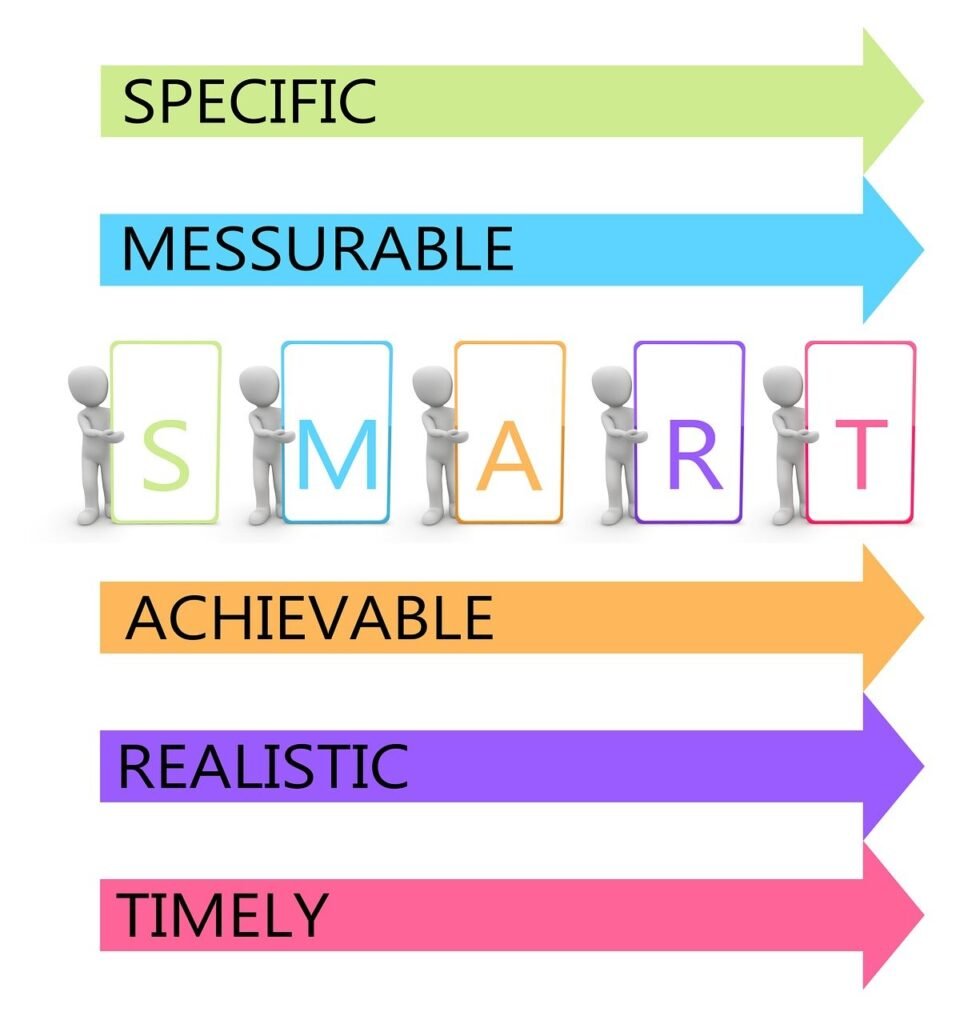Best Advice For Young Adults
In this article, you’ll discover valuable insights on navigating adulthood from a Catholic perspective. Whether you’re a young adult stepping into the real world or someone seeking guidance on how to make the most of this stage in life, you’ll find practical advice tailored to your needs.
From fostering meaningful relationships and taking responsibility for your actions to living out your faith and embracing personal growth, this article offers a wealth of wisdom to help you thrive in your journey toward adulthood. So, grab a seat and get ready to absorb the best advice for young adults from a Catholic perspective.
1. Building a Solid Foundation
Taking Responsibility for Your Actions
Taking responsibility for your actions is a fundamental aspect of building a solid foundation for your life. It means acknowledging that your choices and decisions have consequences, both positive and negative, and being accountable for them.
By accepting responsibility, you empower yourself to learn from your mistakes and grow as an individual. It also demonstrates maturity and integrity, qualities that are highly regarded in both personal and professional settings.
So, whether it’s owning up to a mistake you made at work or taking responsibility for your actions in a relationship, remember that by being accountable, you lay the groundwork for personal growth and success.
Developing a Strong Work Ethic
A strong work ethic is a key ingredient for achieving long-term success and fulfillment in your professional life. It involves demonstrating dedication, discipline, and perseverance in your work and consistently putting forth your best effort.
Cultivating a strong work ethic means going above and beyond what is expected of you, taking pride in your work, and being proactive in seeking opportunities for growth and improvement. By developing this quality, you not only increase your chances of excelling in your career but also foster a reputation for reliability and professionalism.
Setting Clear Goals
Setting clear and achievable goals is essential for navigating through life with purpose and direction. Without goals, you may find yourself drifting aimlessly, lacking motivation and a sense of fulfillment.
By defining your goals, whether they are related to your career, relationships, personal growth, or any other aspect of your life, you give yourself something to strive for and a roadmap to follow.

Setting specific, measurable, attainable, relevant, and time-bound (SMART) goals allows you to track your progress, make necessary adjustments, and celebrate your accomplishments along the way. So, take the time to reflect on what you want to achieve and create a plan to turn your aspirations into reality.
2. Nurturing Healthy Relationships
Choosing the Right Friends
The people you surround yourself with can have a significant impact on your life, so it is crucial to choose your friends wisely. Surrounding yourself with positive, supportive, and like-minded individuals can contribute to your overall well-being and personal growth.
Seek out friends who share similar values and interests, and who inspire and motivate you to be the best version of yourself. Remember that friendships should be built on mutual respect, trust, and genuine care for one another. By choosing the right friends, you create a nurturing social circle that provides emotional support, encourages personal development, and adds joy to your life.
Cultivating Empathy and Compassion
Empathy and compassion are essential qualities for developing healthy and meaningful relationships. They involve putting yourself in someone else’s shoes, understanding their emotions, and showing genuine care and concern for their well-being.
Cultivating empathy and compassion allows you to connect with others on a deeper level, fostering understanding and fostering a sense of community. It is important to actively practice empathy and compassion in your interactions with others, whether it’s by lending a listening ear, offering a helping hand, or simply showing kindness and understanding.
Communicating Effectively
Effective communication is the cornerstone of any successful relationship. It involves expressing yourself clearly and listening attentively to others. By improving your communication skills, you can avoid misunderstandings, resolve conflicts amicably, and build stronger connections with those around you.
Practice active listening, which involves fully focusing on and engaging with the person speaking, and strive to communicate your thoughts and feelings openly and respectfully. Remember that effective communication is a two-way street, so be open to receiving feedback and actively seeking to understand the perspectives and feelings of others.
3. Managing Finances Wisely
Creating a Budget
Managing your finances wisely is crucial for maintaining financial stability and achieving your long-term goals. One of the first steps in effective financial management is creating a budget. A budget helps you track your income and expenses, allowing you to prioritize your spending and make informed financial decisions.
Start by identifying your sources of income and listing your fixed expenses, such as rent or mortgage payments, utilities, and loan repayments. Then allocate funds for variable expenses, such as groceries, entertainment, and savings. Regularly reviewing and adjusting your budget can ensure that you stay on track and make progress toward your financial objectives.
Saving for the Future
In addition to budgeting, saving for the future is a crucial aspect of financial management. By setting aside a portion of your income for savings, you create a safety net that can help you weather unexpected expenses or pursue future opportunities.
Aim to save a portion of your income each month, with the goal of building an emergency fund that covers at least three to six months’ worth of living expenses. Additionally, consider long-term savings goals, such as retirement or major purchases, and explore investment options that can help your savings grow over time. Remember that saving, even small amounts, consistently can make a significant difference in the long run.
Avoiding Debt
Managing your finances also involves being mindful of debt and taking steps to avoid unnecessary debt. While credit cards and loans can provide temporary financial relief, they can also lead to a cycle of debt if not managed responsibly. Before taking on any debt, carefully evaluate whether it is necessary and affordable.
If you do incur debt, make a plan to pay it off as quickly as possible, focusing on high-interest debts first. Avoid unnecessary expenses and prioritize living within your means to prevent debt from becoming a burden. By adopting a proactive approach to debt management, you can maintain financial stability and avoid excessive interest payments and financial stress.
4. Prioritizing Physical and Mental Health
Regular Exercise and Proper Nutrition

Taking care of your physical health is crucial for maintaining overall well-being and leading a fulfilling life. Regular exercise and proper nutrition play significant roles in this regard. Engaging in regular physical activity offers numerous benefits, including increased energy levels, improved mood, and reduced risk of various health conditions.
Find activities that you enjoy and make them a regular part of your routine. Additionally, prioritize proper nutrition by consuming a balanced diet that includes a variety of fruits, vegetables, whole grains, lean proteins, and healthy fats. Staying hydrated and getting adequate sleep are also essential for optimum physical health.
Practicing Self-Care and Stress Management
In addition to physical health, prioritizing your mental and emotional well-being is equally important. Practicing self-care involves engaging in activities that promote relaxation, rejuvenation, and self-reflection. This can include activities such as journaling, practicing mindfulness or meditation, spending time in nature, or engaging in hobbies that bring you joy. Additionally, learning effective stress management techniques can help you navigate the challenges and pressures of daily life. This can include strategies such as deep breathing exercises, setting boundaries, seeking support from loved ones, or engaging in activities that help you unwind and reduce stress.
Seeking Professional Help When Needed
It is essential to recognize when additional support is needed for your physical or mental well-being and to seek professional help when necessary. There is no shame in reaching out to healthcare professionals, therapists, or counselors to address any health challenges or concerns. These professionals have the knowledge and expertise to guide and support you in improving your overall well-being. Seeking help is a sign of strength and self-awareness, and it can lead to transformative change and growth.
5. Embracing Lifelong Learning
Pursuing Higher Education
Continuing to pursue education beyond high school can open doors to new opportunities and broaden your horizons. Whether it’s enrolling in a university, community college, trade school, or pursuing online courses, higher education provides valuable knowledge, skills, and experiences that can empower you personally and professionally.
Consider your interests, passions, and career aspirations when choosing an educational path, and embrace the opportunity to learn and grow in a supportive academic environment.
Seeking Continuous Personal Growth
Education extends beyond the classroom, and personal growth should be a lifelong pursuit. Seek continuous personal growth by exploring your interests, learning new skills, and challenging yourself to step outside your comfort zone.
This can involve attending workshops or seminars, joining clubs or organizations, reading books, listening to podcasts, or seeking out mentors or role models who inspire you. Embracing personal growth allows you to adapt to new challenges, broaden your perspective, and lead a more fulfilling and purposeful life.
Embracing Learning Opportunities

Learning opportunities present themselves in various forms throughout life. Embrace these opportunities by approaching each experience with curiosity and an open mind. It could be learning from a mistake or failure, exploring a new hobby or interest, or seeking input and feedback from others.
View challenges as opportunities for growth and learning, and let go of the fear of failure. By embracing learning opportunities, you develop a growth mindset that allows you to constantly learn and adapt in an ever-changing world.
6. Developing Strong Values and Ethics
Upholding Integrity and Honesty
Developing strong values and ethics is essential for leading an authentic and meaningful life. Upholding integrity and honesty means consistently acting in alignment with your values, being truthful, and demonstrating ethical behavior.
These qualities shape your character and reputation, earning you the respect and trust of others. Stand up for what you believe in and maintain your integrity even in challenging situations. By doing so, you build a strong foundation of trust, both with yourself and with those around you.
Being Respectful and Kind
Treating others with respect and kindness is a fundamental aspect of developing strong values and ethics. It involves recognizing and appreciating the inherent worth and dignity of every individual, regardless of their differences.
By practicing empathy, compassion, and inclusivity, you create a positive and harmonious environment that fosters understanding and collaboration. Foster a culture of respect and kindness in your interactions with others, both personally and professionally, and strive to make a positive impact on the world around you.
Standing up for Justice and Equality
Standing up for justice and equality is an important way to demonstrate your values and ethics. Advocate for fairness, equal rights, and social justice, both on a local and global scale. Educate yourself on the issues that matter to you and find ways to get involved in causes that promote justice, equality, and human rights.
Remember that small actions can make a difference, whether it’s signing petitions, volunteering, or using your voice to advocate for change. By standing up for justice and equality, you contribute to creating a fairer and more inclusive society.
7. Building a Supportive Social Circle
Surrounding Yourself with Positive Influences
Building a supportive social circle is crucial for your personal well-being and growth. Surround yourself with positive influences who uplift and inspire you. Seek out friends who share your values, goals, and aspirations, and who support your dreams.
Surrounding yourself with positive people helps create an environment that fosters encouragement, motivation, and personal development.
Joining Groups or Organizations with Similar Interests
Joining groups or organizations with similar interests provides opportunities to connect with like-minded individuals and expand your social circle. Whether it’s joining a sports team, a book club, a charity organization, or a professional network, participating in group activities allows you to meet new people who share common interests and values. These connections can provide support, guidance, and meaningful friendships that enhance your overall well-being.
Offering Support to Others

Building a supportive social circle is not just about receiving support; it’s also about offering support to others. Actively listen to others’ needs, offer a helping hand when possible, and provide emotional support when needed. By being there for others, you cultivate a sense of community, strengthen your relationships, and contribute to a positive and supportive social network.
8. Cultivating a Spirituality
Exploring Your Beliefs and Values
Cultivating spirituality involves exploring your beliefs and values and seeking meaning beyond materialistic pursuits. Reflect on what gives your life purpose and what you consider to be sacred or transcendent.
This exploration can take various forms, such as engaging in prayer, meditation, or introspective practices, studying religious or philosophical texts, or seeking the guidance of spiritual mentors. By nurturing your spirituality, you discover a deeper connection to yourself, others, and the world around you.
Participating in Community and Worship
Participating in community and worship activities can provide opportunities for spiritual growth and connection. Engage with a community of like-minded individuals who share similar beliefs and values.
Attend religious services or gatherings where you can experience a sense of belonging and connect with others on a spiritual level. Participating in community and worship can provide solace, support, and guidance on your spiritual journey.
Seeking Guidance from Wise Spiritual Mentors
Seeking guidance from wise spiritual mentors can be valuable in deepening your spiritual understanding and providing insights into your personal growth. These mentors may include religious leaders, teachers, or individuals who have cultivated wisdom through their own spiritual journeys.
Learn from their experiences, seek their counsel, and engage in meaningful conversations that challenge your beliefs and encourage personal transformation.
9. Embracing Failure as a Learning Opportunity
Embracing Resilience and Perseverance
Embracing failure as a learning opportunity involves developing resilience and perseverance. Failure is a natural part of life, and rather than being discouraged by it, use it as an opportunity for growth. Cultivate resilience by bouncing back from setbacks, learning from your mistakes, and embracing challenges with a positive mindset.
Persevere through adversity, understanding that setbacks are stepping stones toward success. By embracing resilience and perseverance, you develop the resilience and determination needed to overcome obstacles and achieve your goals.
Learning from Mistakes and Moving Forward
Mistakes are valuable learning opportunities. Instead of dwelling on them or allowing them to define you, use mistakes as lessons that propel you forward. Take responsibility for your mistakes, analyze what went wrong, and identify ways to improve.
View failures and setbacks as stepping stones to success, and channel your energy into finding solutions and making positive changes. By learning from your mistakes, you become a more self-aware, adaptable, and resilient individual.
Accepting Rejection and Turning It Into Motivation
Rejection is an inevitable part of life, and learning to accept it gracefully is a valuable skill. Rather than allowing rejection to discourage you, use it as motivation to prove yourself and strive for improvement.
Embrace rejection as an opportunity for self-reflection and growth. Ask for feedback, learn from the experience, and use it to fuel your determination to succeed. Remember that rejection is not a reflection of your worth but an opportunity to redirect your energy and strive for even greater achievements.
10. Striving for a Balanced Life
Finding a Healthy Work-Life Balance
Achieving a healthy work-life balance is crucial for your overall well-being and happiness. Strive to find an equilibrium between your professional responsibilities and personal life. Dedicate time and energy to both work and leisure, ensuring that you have adequate rest, relaxation, and quality time with loved ones.
Set boundaries to maintain a separation between work and personal life, and prioritize activities and relationships that bring you joy and fulfillment outside of your work commitments.
Prioritizing Relationships and Personal Time
As you strive for a balanced life, it’s important to prioritize relationships and personal time. Cultivate meaningful connections with loved ones, nurturing strong bonds and spending quality time together.
Engage in activities that bring you joy and fulfillment, whether it’s pursuing a hobby, participating in recreational activities, or simply taking time for self-reflection and relaxation. By prioritizing relationships and personal time, you create a life that is rich in experiences, love, and personal growth.
Engaging in Hobbies and Recreation

Engaging in hobbies and recreational activities is an essential component of achieving a balanced life. Hobbies provide an outlet for self-expression, creativity, and personal enjoyment. Whether it’s playing a musical instrument, painting, gardening, or participating in sports, find activities that bring you fulfillment and relaxation.
Prioritize time for hobbies and recreation, allowing yourself moments of joy and self-discovery beyond work or other obligations. By engaging in hobbies and recreation, you foster a sense of fulfillment, creativity, and well-roundedness in your life.
In conclusion, building a solid foundation and leading a fulfilling life entails taking responsibility for your actions, nurturing healthy relationships, managing finances wisely, prioritizing physical and mental health, embracing lifelong learning, developing strong values and ethics, building a supportive social circle, cultivating spirituality, embracing failure as a learning opportunity, and striving for a balanced life.
By actively implementing these principles in your life, you pave the way for personal growth, success, and happiness. Remember that each individual’s journey is unique, and it is up to you to embrace these principles and tailor them to your own circumstances and aspirations.






